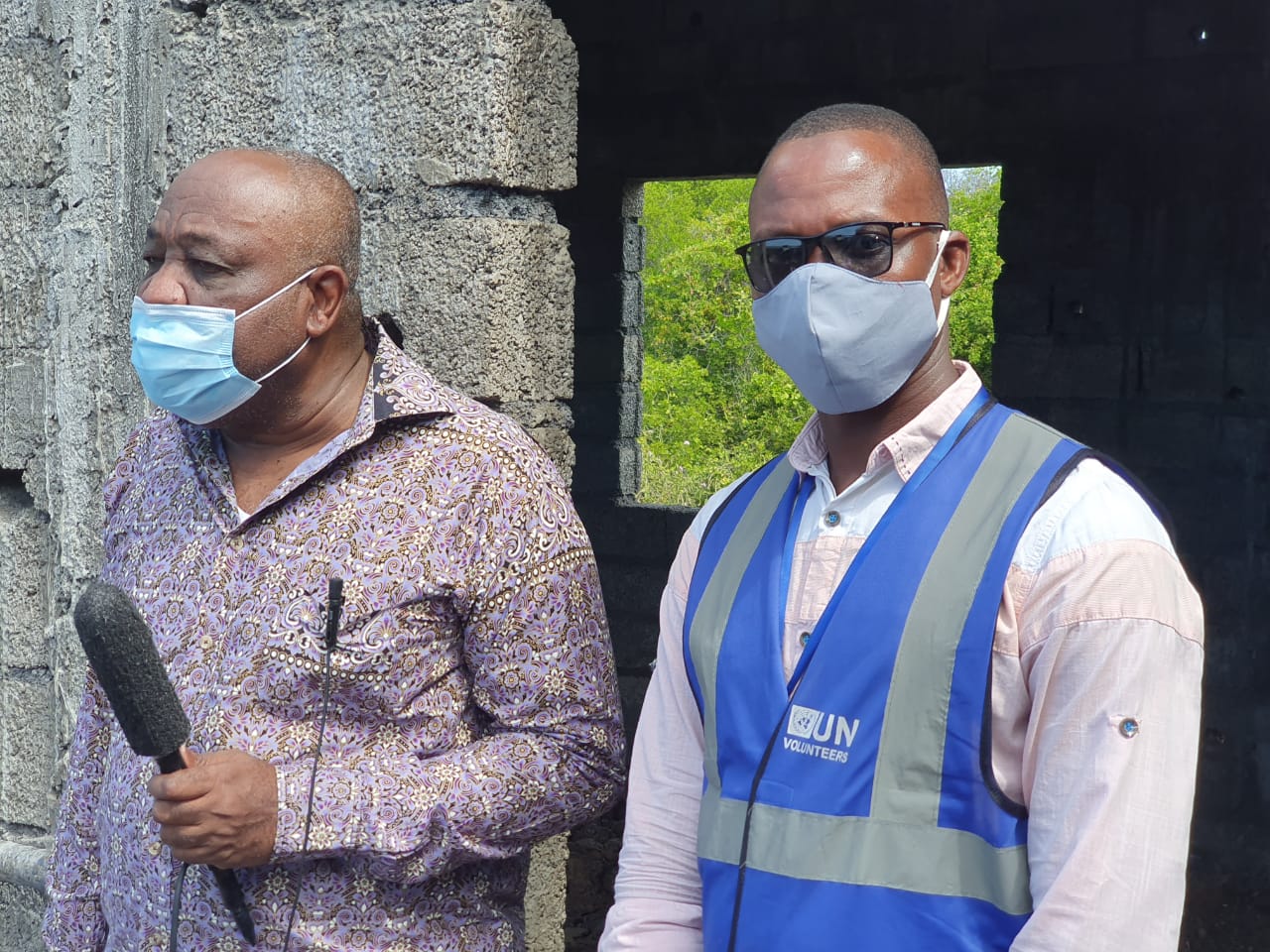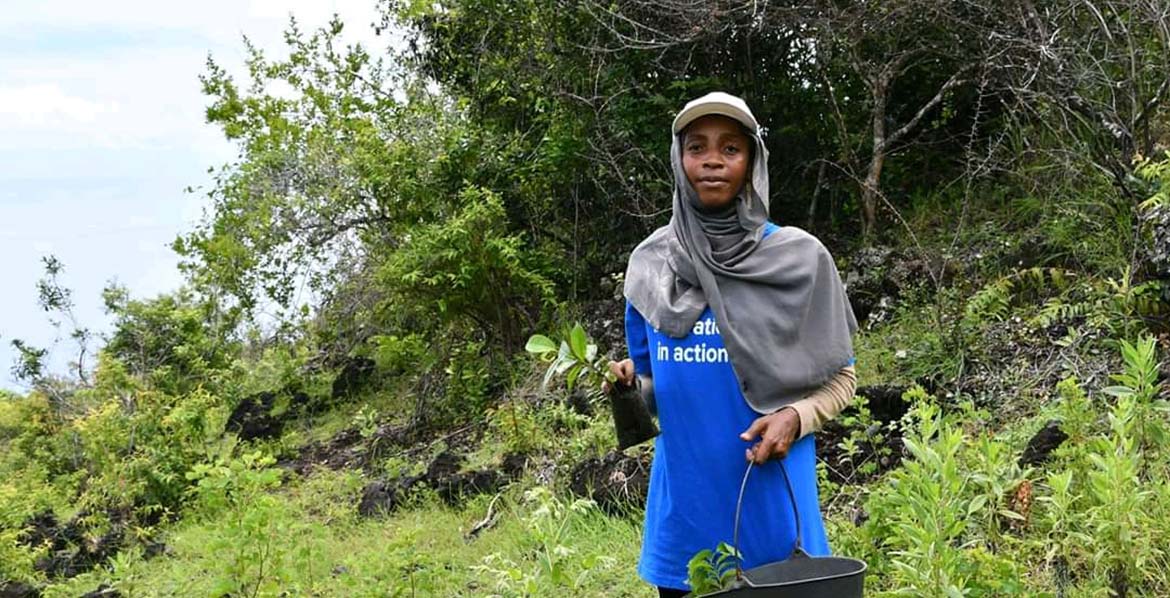The Comoros is a small island state prone to the negative impacts of climate change and disasters due to climatic and geographic factors. The UNDP project is implemented in three of its four islands, namely Ngazidja (Grande Comore), Mwali (Moheli) and Ndzuani (Anjouan).
During 2019-2020 period, over 2,000 fruit trees and nearly 20 forest plants were planted, in collaboration with communities, the Rural Centre for Economic Development and other partners. The reforestation through fruit trees also leads to increased income sources for local farmers.
The species, selected by their great economic potential in terms of immediate income, will ensure the economic resilience of the most vulnerable, especially women and young people, in an area that is already exposed to climate change. --UN Volunteer Houda Abdoulbastoi
In this photo, Houda helps prepare fruit species for a reforestation campaign in the resilience project. These fruits trees are expected to enhance community incomes and improve environmental conservation in the region.
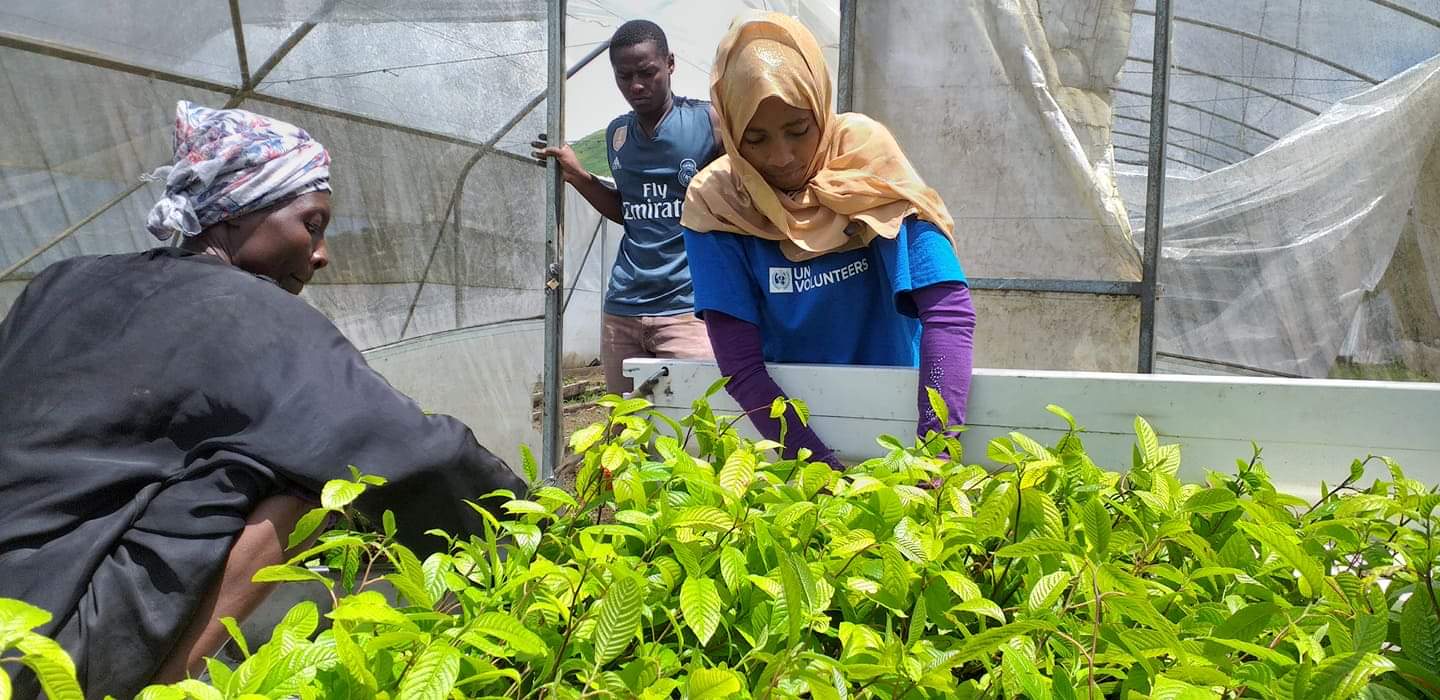
Launched in May 2018, the Climate Disaster Resilience Project strengthens the capacity of the people to adapt to disaster risks and reduce the vulnerability of communities to climate change.
It is implemented by the Department of Civil Security with the technical and financial support of UNDP and the Global Environment Facility.
Houda (right) and Fahamiya Abdou are fellow UN Volunteers in the resilience project. In this photo, they are helping in the reforestation operation by delivering plants to local communities. The species they are delivering is called ylang ylang and is important for several health benefits.

Comoros has limited resources and weak economic resilience. The Comorian population mainly depends on subsistence means based on traditional cultures and natural resources. Existing land-use practices have been linked to the mismanagement of natural and manageable resources, which lead to food and water insecurity.
In this photo, UN Volunteers (from left: Silma Abdouroihamane, Houda Abdoulbastoi and Fahamiya Abdou) take stock of fruit tree seedlings during their project site activities. Such activities help in strengthening climate resilience and the livelihoods of local communities in the face of natural disasters and climate change and increase knowledge transfer.
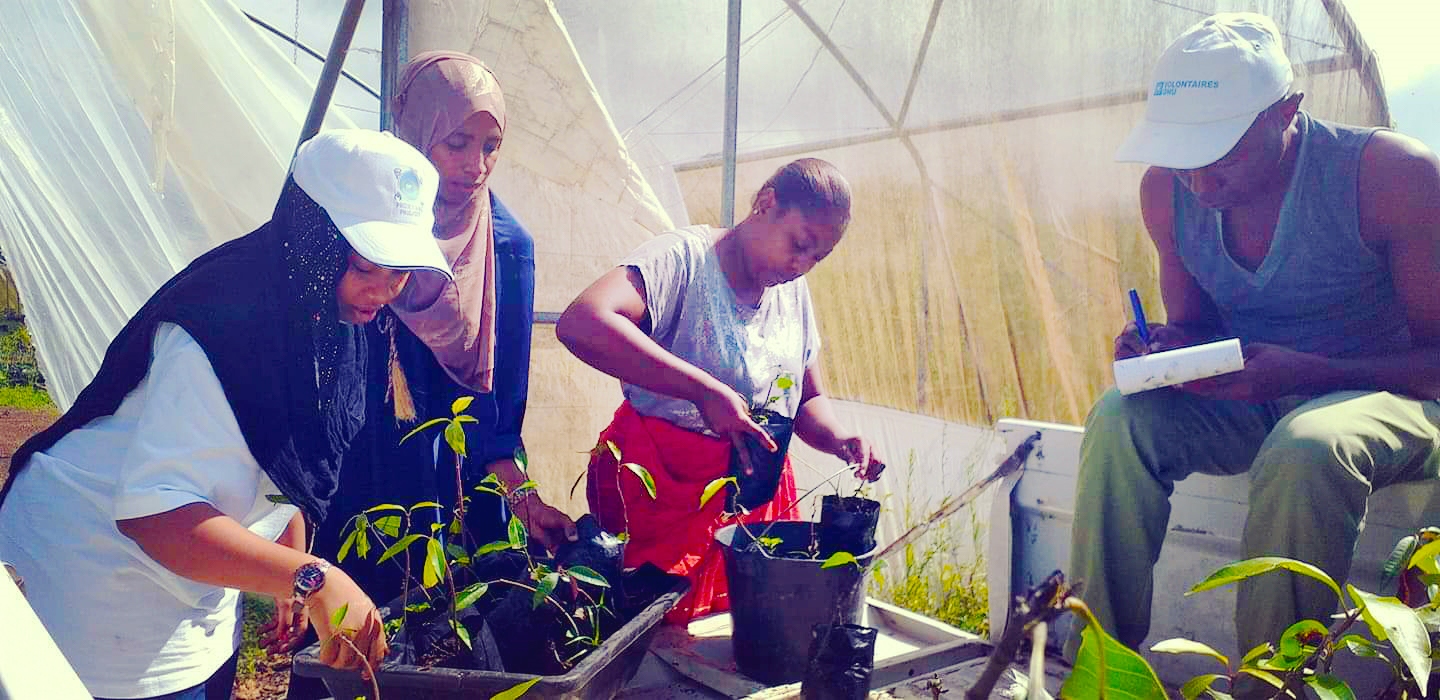
The resilience project also involves engagement in community empowerment activities.
In the photo, Fahamiya Abdou, one of the UN Volunteers in the project, is concluding a clean-up activity for cleaning and disinfecting two markets in Moroni for prevention of COVID-19, including Vovo-volo, the largest open-air markets in Grande Comore.
The activity was carried out by the project team and volunteers and graced by the governor of the island of Grande Comore and Ms Fenella Frost, the UNDP Resident Representative.
“I am delighted to have participated this morning with the Ministers of the Interior and of the Economy and the Governor of Ngazidja in the operation of cleaning the two markets of Moroni, in order to support the teams of the prefecture of center, town hall and volunteers to stop the coronavirus," said Ms. Frost said during the event that took place in April of this year.
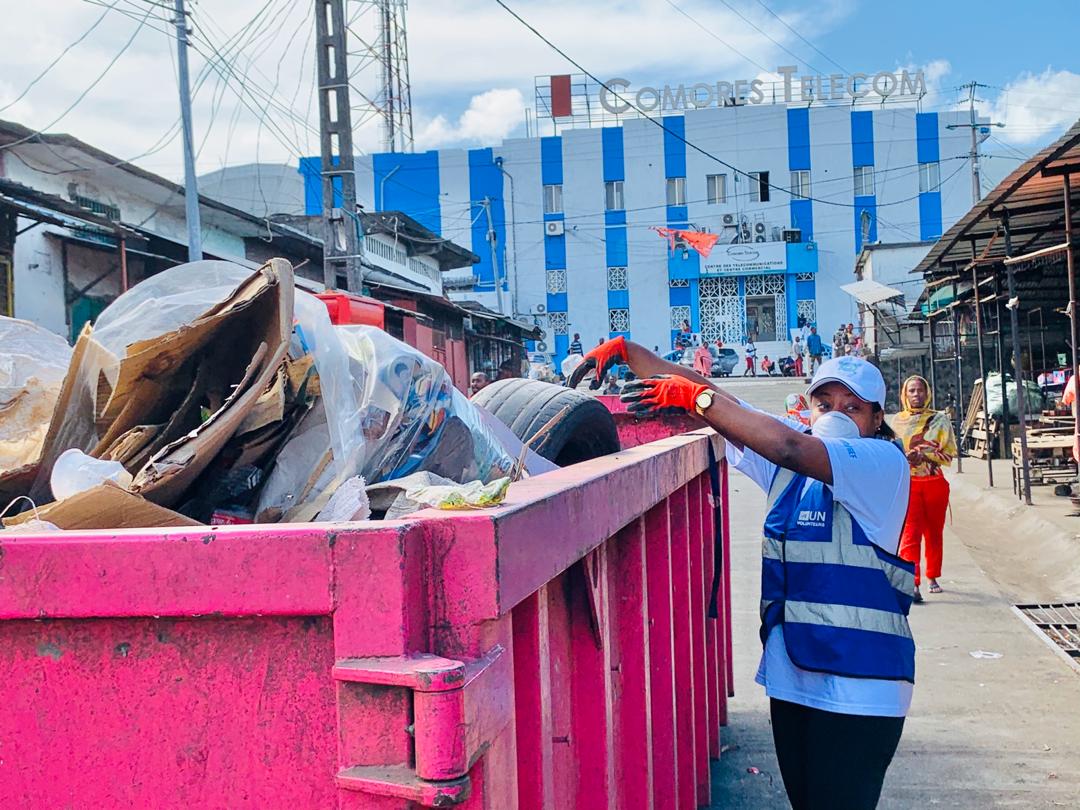
Faya Martin Tolno (in blue vest) is an international UN Volunteer engineer in rural engineering in the project Ensuring climate resilient water supplies in the Comoros Islands, also being implemented by UNDP in the 3 islands of Ngazidja (Grande Comore), Mwali (Moheli) and Ndzuani (Anjouan).
He supports the project in the construction of new buildings in the three islands of Comoros where the project is being implemented, and works closely with colleagues and volunteers from other projects.
In this photo, he was also part of the team that led operations in the COVID-19 prevention exercise at the Vovo-volo market in Morini. The exercise involved market clean-up and community sensitization for improving water, hygine and sanitation (WASH) standards.
